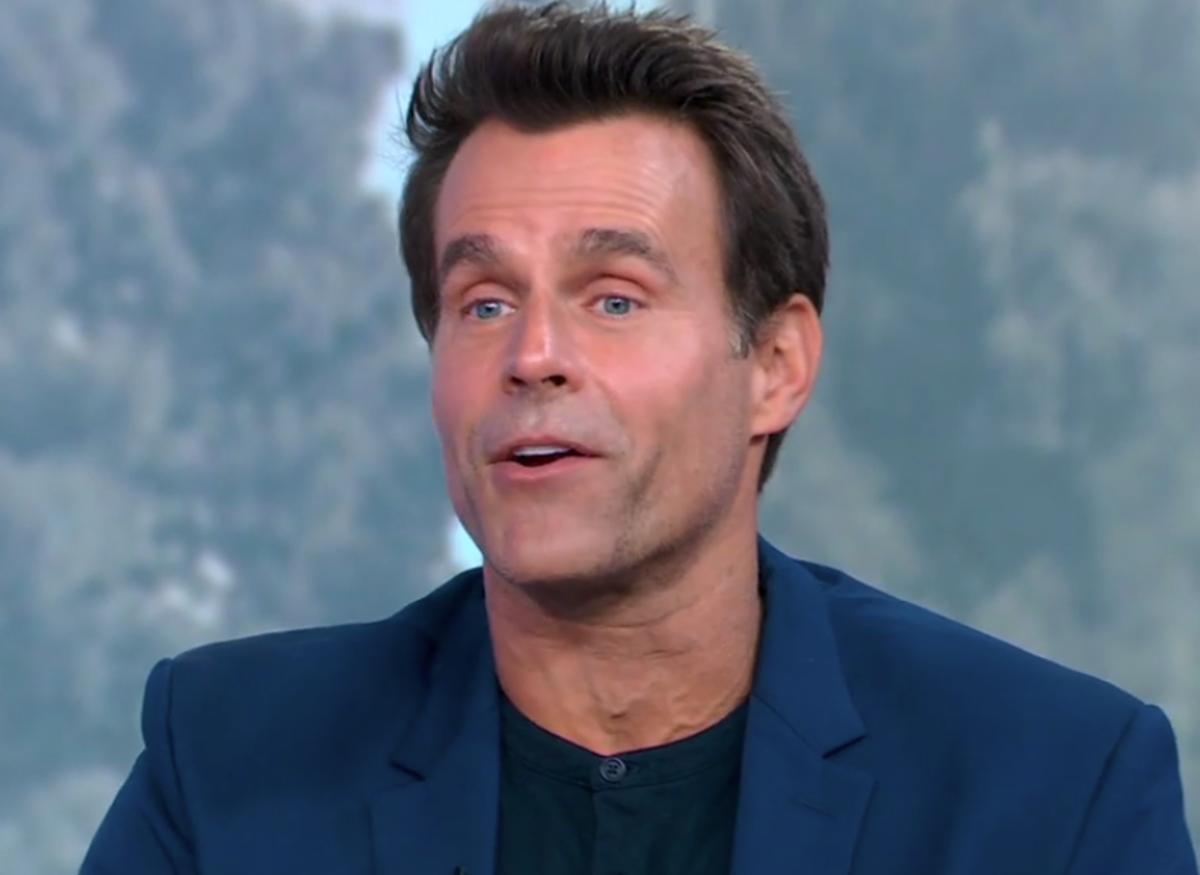Enjoying Life After Kidney Cancer
- Cameron Mathison, who starred as Ryan Lavery on the soap opera “All My Children” and was diagnosed with kidney cancer back in 2019, appears to be enjoying life after cancer as he celebrated his wife Vanessa’s 43rd birthday.
- The loving couple took to Instagram to share a heartwarming and cheerful video compilation of Vanessa modeling alongside a 1965 Mustang Fastback.
- Vanessa was by Mathison’s side as he battled cancer, telling him after his diagnosis, “We got this. We're going to beat it.”
- Having a strong support network through cancer, as Mathison did, is important.
- A good support network is made up of a spouse or partner, family members, friends, and a therapist, which can make the journey easier to handle.
The 53-year-old dad of two celebrated his wife’s 43rd by sharing a playful car shoot video of her modeling around their 1965 Ford Mustang, a car he purchased for her instead of a ring years ago.

The famed actor and TV host previously purchased the car for Vanessa when she was his girlfriend.
More Kidney Cancer Stories
- ‘Watch Your Bodies. Get a Physical. Get Tested’: ‘Happy Death Day’ Director Chris Landon Urges Vigilance After Kidney Cancer Diagnosis, Emergency Surgery
- Kidney Cancer May Have Slowed Olympic Skater, Maia Shiboutani, but She’s Still a Force: ‘It’s Tough, but I believe in the Fight’
- New Hope for Kidney Cancer Patients: Immunotherapy Drug Reduces Risk of Recurrence by 32%; Read One Man’s Amazing Story
- ‘Below Deck Med’ Star Captain Sandy Yawn Just Celebrated Another Year Free of Kidney Cancer … and 33 Years of Sobriety!
- Cameron Mathison Looks Remarkable Post-Cancer Surgery — 8 Factors that Can Make a Difference in Recovery Time
In an earlier interview with MotorTrend, Mathison explained, “It’s got a lot of sentimental value. I bought the car and put it in my wife’s name when we were dating and living on opposite coasts.”
“I was living in New York, and I was a little bit of a single guy at the time, and she didn’t know I was serious about the relationship, so I bought it and put it in her name and left it in California with her,” he explains.
“For me, it represents our relationship. It’s been work. You’ve got to upkeep it, you’ve got to cherish it, just like a relationship. I’ve had that as long as we’ve been dating, almost exactly, which is pretty cool. It’s a really special car, a kind of car that my son’s waiting to take over later in life.”

In addition to celebrating his wife’s birthday, his son Lucas turned 20 years old on April 20th which prompted Mathison to share a handful of photos of him and his son on his Instagram story.
Mathison’s family has been by his side throughout his kidney cancer journey. In fact, back when he received his diagnosis in 2019, his wife made it a point to assure him everything would be ok – and they’d do it together.
In an earlier interview with US Weekly, Mathison recounted having a heartfelt talk with his family: “Telling my wife was difficult emotionally. I couldn't get the words out. … Her first reaction was, 'You know, we got this. We're going to beat it.’ … Those are the moments you never forget your whole life.”
And that kind of strength and support in the face of cancer is something SurvivorNet loves to see between a couple.
Mathison's Kidney Cancer
In 2019, Mathison was diagnosed with renal cell carcinoma, a type of kidney cancer. And he had kidney surgery in October 2019 to get rid of the cancerous tumor growing there. In surgery, part of his right kidney was removed.
There are two primary types of kidney cancer found in adults: renal cell cancer and transitional cell cancer. Mathison's type of cancer, renal cell carcinoma, occurs when malignant cells form in the tubules of the kidney.

Symptoms of renal cell carcinoma include blood in the urine and a lump in the abdomen area. Other indicators of kidney cancer may include persistent pain, unexplained weight loss, loss of appetite, and anemia.
It's important to listen to your body and note any changes that may be occurring, so you can seek a physician's care if needed.
Robotic surgery is sometimes used to treat kidney cancer tumors. In an earlier interview with SurvivorNet, Dr. Heidi Gray spoke about how to prepare for robotic surgery.
“There's not a lot of preparation before surgery. There's typically no eating after midnight kind of things like that. But most of the time, patients are just overnight in the hospital and are able to go home the next day,” Dr. Gray said.
“Again, the benefit for minimally invasive surgery, because the incisions are small, pain is less, infection is less, things like that. So patients are up walking really sometimes four to six hours after surgery. And so they're really able to return to their homes and do their recovery at home.”
Support Through Cancer
Having a strong support network through cancer, as Mathison did, is important. A good support network is made up of a spouse or partner, family members, friends, and a therapist, which can make the journey easier to handle.
In an earlier interview, Camila Legaspi, who lost her mom to breast cancer when she was in high school, told us how important support was to her following her cancer-related loss.
Like many others coping with a cancer diagnosis or coping with grief, Legaspi turned to therapy. She said, "Therapy saved my life. I was dealing with some really intense anxiety and depression at that point. It just changed my life, because I was so drained by all the negativity that was going on."
Legaspi spoke about how therapy helped her keep things in perspective, too, adding, “Going to a therapist helped me realize that there was still so much out there for me, that I still had my family, that I still had my siblings. The reality is, when you lose someone, it's really, really, really hard. And it's totally OK to talk to someone. And I'm so happy that I talked to my therapist. Keep your chin up, and it's going to be OK. No matter what happens, it's going to be OK. There are so many of us that have gone through the same thing that you're going through. And, together, we're all going to get through it.”
"Therapy Saved My Life": After Losing A Loved One, Don't Be Afraid To Ask For Help
How Parents Find Strength in Children During Cancer Battle
It’s always helpful for cancer warriors to know they have a strong support group behind them before and after treatment.
SurvivorNet experts say it assists with alleviating anxiety and depression as cancer treatments become more intense over time, or when they adjust to a new normal afterward.
Sometimes the support can come from a supportive spouse or partner or even your children. Young family members such as children can also serve as motivation for cancer warriors.
"No matter what your prognosis is, it's essential to talk openly and honestly with kids," Laura Nathan-Garner, Director of Strategic Communications at MD Anderson Cancer Center, previously said.
Your Support System Matters Jill Kargman on Getting Through Cancer With Support from Friends
"Cancer patients with children can have increased motivation to endure difficult treatment but may also be concerned about the emotional impact of the illness on their offspring," Dr. Cindy Moore of Massachusetts General Hospital Cancer Center explained to The ASCO Post, an oncology newspaper.
Dr. Moore said cancer warriors with children should discuss their biggest concerns with their healthcare teams so an effective communication plan can be created to explain their diagnosis to their kids.
Contributing: SurvivorNet Staff
Learn more about SurvivorNet's rigorous medical review process.


